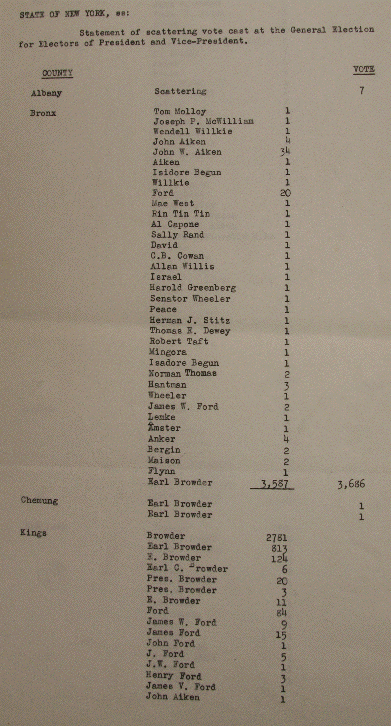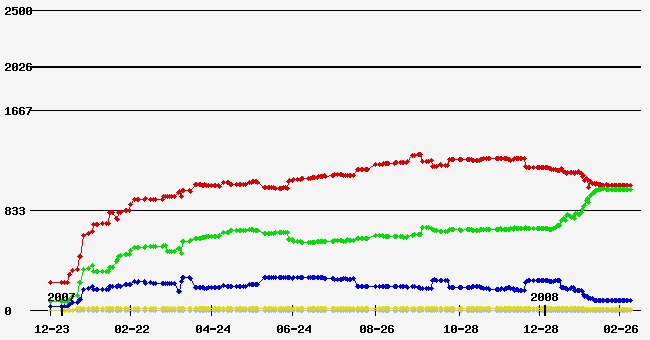I have found 12,301 votes cast in the 1940 General Election that have not been tabulated in any secondary source that I have looked at (including Congressional Quarterly and Clerk of the House).
In my annual drive between Eastern Massachusetts and Upstate New York, I often stop into a very deep repository of past election data – the New York State Library in Albany to collect additional past election data. This trip was a bit different, as I spent some time four floors above the library in the New York State Archives. Here, they have many original hand-written and typed records of election returns. Among the new data that I collected, was a sheet of write-in returns for the State of New York for the office of President in 1940. The document, titled “Statement of scattering vote cast as the General Election for Electors of President and Vice-President”, tabulated 12,301 write-ins for President.  These votes include 11,289 for Communist Party candidate Earl Browder, 121 votes for Socialist Labor candidate John Aiken, and 891 votes for scattered write-ins. The vast majority of these write-in votes were recorded in the New York City boroughs of Bronx, Kings, and New York, where Browder received about 0.5% of the vote in these Counties as a write-in. The document only includes write-ins for 12 of New York’s 62 counties. Some of the larger counties, such as Erie, are absent, so it is likely that there are even more votes for Browder that are uncounted. These votes will soon be added to the Atlas election results database.
These votes include 11,289 for Communist Party candidate Earl Browder, 121 votes for Socialist Labor candidate John Aiken, and 891 votes for scattered write-ins. The vast majority of these write-in votes were recorded in the New York City boroughs of Bronx, Kings, and New York, where Browder received about 0.5% of the vote in these Counties as a write-in. The document only includes write-ins for 12 of New York’s 62 counties. Some of the larger counties, such as Erie, are absent, so it is likely that there are even more votes for Browder that are uncounted. These votes will soon be added to the Atlas election results database.





